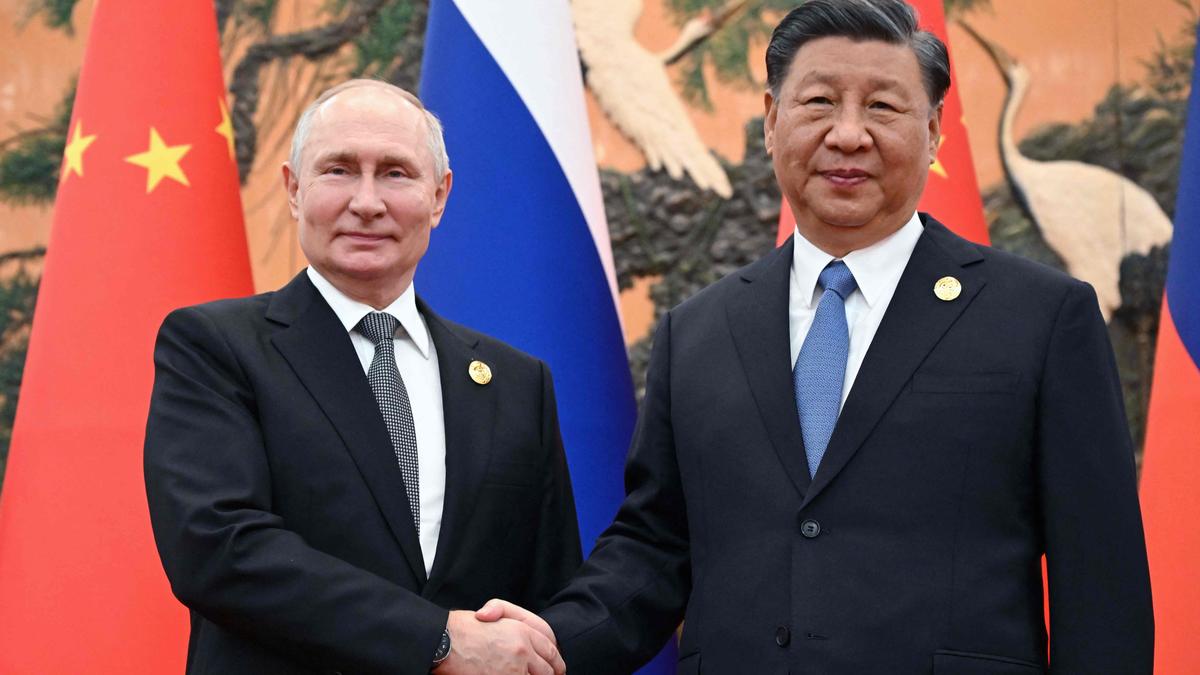
What does the Russia-China strategic convergence mean for India? | In Focus podcast
The Hindu
In this episode, Jabin T Jacob joins us to explore the strategic Russia-China partnership, Western concerns about China’s aid, and the implications for India, which views China as a threat but depends on Russian defence imports.
Chinese President Xi Jinping last week hosted a reception for Vladimir Putin at the historic Great Hall of the People in Beijing. The two-day summit was marked by a lengthy joint statement that, among other things, said that China and Russia will promote “an equal and orderly multipolar world”. The statement also outlined a vision of a new world order with “no neo-colonialism and hegemonism” of any kind.
The two countries took aim at the US, criticising unilateral sanctions and what they termed ‘long-arm jurisdiction’ without basis in international law or UN Security Council authorisation. The statement also highlighted the expansion of Russia-China ties beyond “opportunistic” bilateral cooperation to one of deeper partnership.
What are the implications of this growing strategic convergence between two major powers, both of whom are veto-holding Security Council members? Can China balance Western concerns about its aid to Russia, especially dual-use technology? What are the implications of this friendship for India, which views China as a geopolitical rival and military threat, but is highly dependent on Russia for defence imports?
Guest: Jabin T Jacob, Associate Professor in the School of Humanities and Social Sciences at Shiv Nadar University.
Host: G. Sampath, Social Affairs Editor, The Hindu.
Edited by Jude Francis Weston
Listen to more In Focus podcasts:











